Fatherhood and traveling alone: navigating life's contradictions
My family is staying at home while I go to Naples for some paperwork and I have mixed feelings: freedom, homesickness and nostalgia.
I realize it in the morning, before leaving: I feel a certain level of excitement about traveling. It feels like enthusiasm, although it is confusing. I will go from Athens to Naples to see if I can finish the process for my Italian citizenship, which I started five years ago.
I started the process shortly after we left Buenos Aires, when Irene and I had been married for two years and the idea of having children was on the vague but near horizon.
Now there are four of us and we have been living in Greece for more than two years. We arrived here in the middle of the pandemic, which left a mark in our lives, as in the lives of most of the people I know.
But now it is Sunday morning. I tell Lorenzo, my four-year-old son, that I am leaving for a few days: “No, no, Dad. You can’t go. Otherwise I’ll throw you into the sea.”
I think his threat is a bit strong, but I understand that he doesn’t like me leaving. I also tell him that it will pass quickly, that it’s only a few days. “Are you going to bring me a present?” he replies, still with tears in his eyes. I leave the possibility open, I tell him that it will depend on how he will behave while I am away. He smiles, tears streaming down his cheeks.
I want to leave, but I also want to stay home with my family.
---
At Athens airport, while waiting to board the plane, I see a woman with her son, who must be about Lorenzo's age. He lies down and plays with his mother. I feel tenderness — something that did not happen to me before I became a father, when I used to avoid sitting near children.
These changes occurred, like so many others, without me imagining they would: the experience of fatherhood turned me into another person. The change, however planned it may have been, was radical.
Fatherhood is like a wind that shapes life. Or rather, like the water of a river: it never stops and while it flows it can be a witness or a protagonist.
Every day I notice something different, following the rhythm of life (both as a couple and as a father) comes in bursts, both comforting and stormy.
At times, everyday life seems like an infinite jigsaw puzzle in which, as some pieces fit in perfectly in one area, they fall out of place in another part. When that stresses me out, I suffer from it (too much, and then it seems exaggerated). When I take setbacks, disagreements or conflicts as part of life or even as challenges, it works better for me: I learn.
Contradictions are permanent. At times, being the parent to two children weighs on me: the lack of time, the economic demands, the bad sleep for the last four years, the children’s constant demands…
But as soon as Lorenzo falls asleep, I end up in one of the commonplaces of parenthood: I see him snoring and I feel so much tenderness towards him that I consider waking him up. I look at him and wonder why I miss him already if until ten minutes ago all I wanted was for him to go to sleep so I could have a break and do something other than take care of him.
Now, the boy next to me at Athens airport grabs my passport and the mother rushes to tell him he can’t do that. It’s funny to me. Since it’s not my child, I can just see his curiosity. Why can’t I do the same with my own child?
Maybe the child is struck by the fact that my passport is blue and not burgundy like theirs. Or maybe he is surprised that I am not European but still speak Italian, as I will be told several times in the following days.
The flight takes me to Rome. Since I have three hours until the train leaves for Naples, I’m going to walk around the Italian capital. It’s a luxury, no doubt. And, above all, it’s something I haven’t done for a long time: walking alone for three hours. I don’t know it yet, but as soon as I start walking, thoughts (about parenthood, about life as a couple) start to pile up.
After a while, suddenly, I’m in front of the Trevi Fountain. It’s packed with people, as usual. I discover that my gaze stops on what I left behind in Greece: what I see most are couples and families. Does this mean that I miss them? Can I miss them but still enjoy myself and want to be alone for a few days?
The image of the morning comes to me, when I told Irene that I was excited about traveling (alone), that maybe we should do it every now and then — each of us alone and also the two of us together, without children, when parenthood allows us. I sense that she doesn’t like my comment so much, and it’s understandable: besides going away — and leaving her for a few days with all the burden of the two children — I tell her that I’m happy I am leaving.
I understand, too, that in general we were raised that way, to be afraid (of uncertainty, of what is different, etc.). We were bombarded by comments that are the expression of a doctrine that goes something like this: “If my partner goes away from my domain, anything can happen (above all, he/she can go with someone else).”
We have — at least, within monogamous and heteronormative life — a possessive conception in relationships: my partner, my child... My, my, mine, mine, mine, and mine alone. Why are we then surprised when our children want their toys only for themselves and no one else?
I walk about ten kilometers through Rome. Like the streets, I go up and down. At times I feel strange. It’s like visiting my life before having children, except that I’m no longer that 30 year old to whom fatherhood felt far away.
Can I miss my family or feel a kind of nostalgia for them — I haven’t seen them in just a few hours and I will see them again in less than a week? And again the same mixed feeling: a part of them misses them, another part feels free — and younger —, and another feels somewhat weird. I don’t know why.
I’m also surprised that several times I think about something I have been thinking about since Leon was born -the youngest son, four months old-: what if we have a third child? I think of it as an irrational possibility born out of desire.
I mean, I like the idea of having one more child (or two more?) despite all the “buts” that form a mountain as soon as I start to reason: why am I thinking about a third child when the birth rate worldwide has been dropping for years and is less than three children per woman in the whole planet?
Then I read in the New York Times that I’m not the only one — and Irene thinks so too: in the United States the proportion of families with three children has remained fairly constant over the past three decades and, moreover, the proportion of Americans who say that the ideal is to have three or more children has increased.
Still, on a personal level: Why do I think about having one more child when at times it is so hard for us to have two? Why do I do it if Irene and I are still adjusting as a couple to this new family dynamic? Especially considering that, as freelancers, we are always on a terrain that we want to believe is solid economically but when we rationalize it we clearly see that we are on a ledge due to the instability of our jobs.
Besides, the other day I crunched some other numbers: when León turns 21, I will be 62, the age at which my mother started to get sick (before she died, at 70). If we had a third child, and if history were to repeat itself, at what age would the third child be left without his father? And the fourth? This is how I was stringing thoughts together. And, clearly, all roads did not lead to Rome but to not having any more children.
But even so, the desire to have one more child remains latent, and it clashes with something like a certainty or intuition that it is quite likely that we will not have one more. All at once and at the same time.
When I arrive in Naples it is night time. The first thing I do at the train station is go to Ciro, one of the city’s famous pasticcerie, and buy a sfogliatella frolla, one of my favorite Neapolitan sweets. And it’s warm: bingo!
In the ten years we’ve been together with Irene we came many times to Naples, where she was born. I even spent a lot of time alone in this city. The last time we were here was in September 2021 because I was writing a reportage on the first anniversary of Diego Maradona's death for Rolling Stone magazine.
The thing is, this is the first time I feel like a tourist here. I decided to stay in a hostel for several reasons. Mainly not to bother family and friends, and to be more comfortable with my schedule, besides taking advantage of these days to get some work done, something I am not able to do when I am absorbed by the family dynamics at home.
Well, at least those are the rational reasons, because I’m sure that there are many more reasons that I do not have access to in my unconscious mind.
I suspect this because I feel a lot of enthusiasm about staying in a hostel, even though I know there are many things that I may not like or may be unpleasant: a priori it does not sound very tempting — at this stage of my life — to sleep in a room I share with shared room for eight people.
When I check-in I notice that the towel is not included in the rate: how much of a traveler’s smell will there be? How safe will it be to have my laptop and documents for the citizenship process? What will be the state of the bathrooms?
In the end, none of that is a problem. But still, the first night something unexpected happens. As my friend Ariel says: “In the end, life is always more imaginative than us.”
Once again, I confirm this is true when a noise startles me in the middle of the night. "No, no, noooo. No, no, noooo. Please, leave me!” At two o'clock in the morning someone is screaming inside the room. I don’t quite know how to react — I haven’t met any of my roommates at this point.
At first I imagine they’re attacking the guy. But then, in the dim light, I see that the guy is moving fast and that he is alone up there on top of the bunk bed. Is there a rat? When I can see more clearly, I notice that he is sitting in a corner of the bed. Suddenly he comes down and rummages through his bag, as if looking for something.
It strikes me that no one says anything. It seems rather unlikely to me that they haven’t woken up. As I’m a bit scared, I think that the others might be feeling just the same and may be pretending to be asleep. I ask him if he’s okay, if he needs anything. Then, as if he had been asleep until that moment, he says: “Sorry, sorry, nothing’s wrong. Sorry.” And he goes back up to his bed. And nobody says anything.
This is also what happens when there are people who witness violence in the street, isn't it? Fear and the obsession to avoid getting into trouble are horrible rulers.
In addition to the unexpected screaming, I take a while to go back to sleep because I hear a cell phone vibrating. Did someone leave it on to be reached in case of an emergency? What could be so serious that it is necessary to be reachable during the night? This didn't happen before. And just because it happens now doesn’t mean it’s wrong, of course.
The scene the following morning is also something that did not happen before: when I open my eyes, at about 7:30, I see that everyone — they’re all younger, in their early twenties — is awake and quiet, as if hiding inside their screens.
The scene resembles what is common on public transport, but it happens inside a room with eight people who are just waking up. And yes, it catches my attention a little more. But I am more surprised that a skinny guy, besides checking his phone, goes out to the balcony in his pajamas to smoke.
The one who had woken up at 2 a.m. is a bearded guy with a somewhat withdrawn attitude. I greet him, ask him how he is. He tells me, as if following the early morning conversation, that he doesn't know what happened, that he thinks he had a nightmare, and thanks for asking. I tell him that it had occurred to me that he might have a rat in his bed.
“I don't think there are rats here,” says a woman, who is the only woman in this mixed room.
“There are rats in France, aren’t there?” asks the guy who had the nightmare.
The girl says yes.
I am left thinking about the distance between some fears and prejudices and what happens in reality. Because if I wasn’t in this room I would believe — well, I still believe — that it would be risky for this girl to sleep in the same room as seven guys. But while I’m in the hostel, nothing seems more harmless to me. And she seems to be doing just fine. But the hard fact is that she is the only one in this room.
When I go to breakfast, L'anno che verrà is playing, a song about the changes that are wished for in the new year. It is one of the most famous songs by singer-songwriter Lucio Dalla, who said: “I wrote a song that is far from pessimistic. There are no miracles, the only thing we can do is to act on ourselves, to function, not to always see black and focus on what’s terrible.”
…
Well, I'll leave it here.
Thank you very much, as always, for reading, commenting and sharing with others this newsletter.
See you next time!
With love,
Nacho
…
🙏 Many thanks to Worldcrunch for translating and editing this newsletter.
Naples - 📸 Ignacio Pereyra






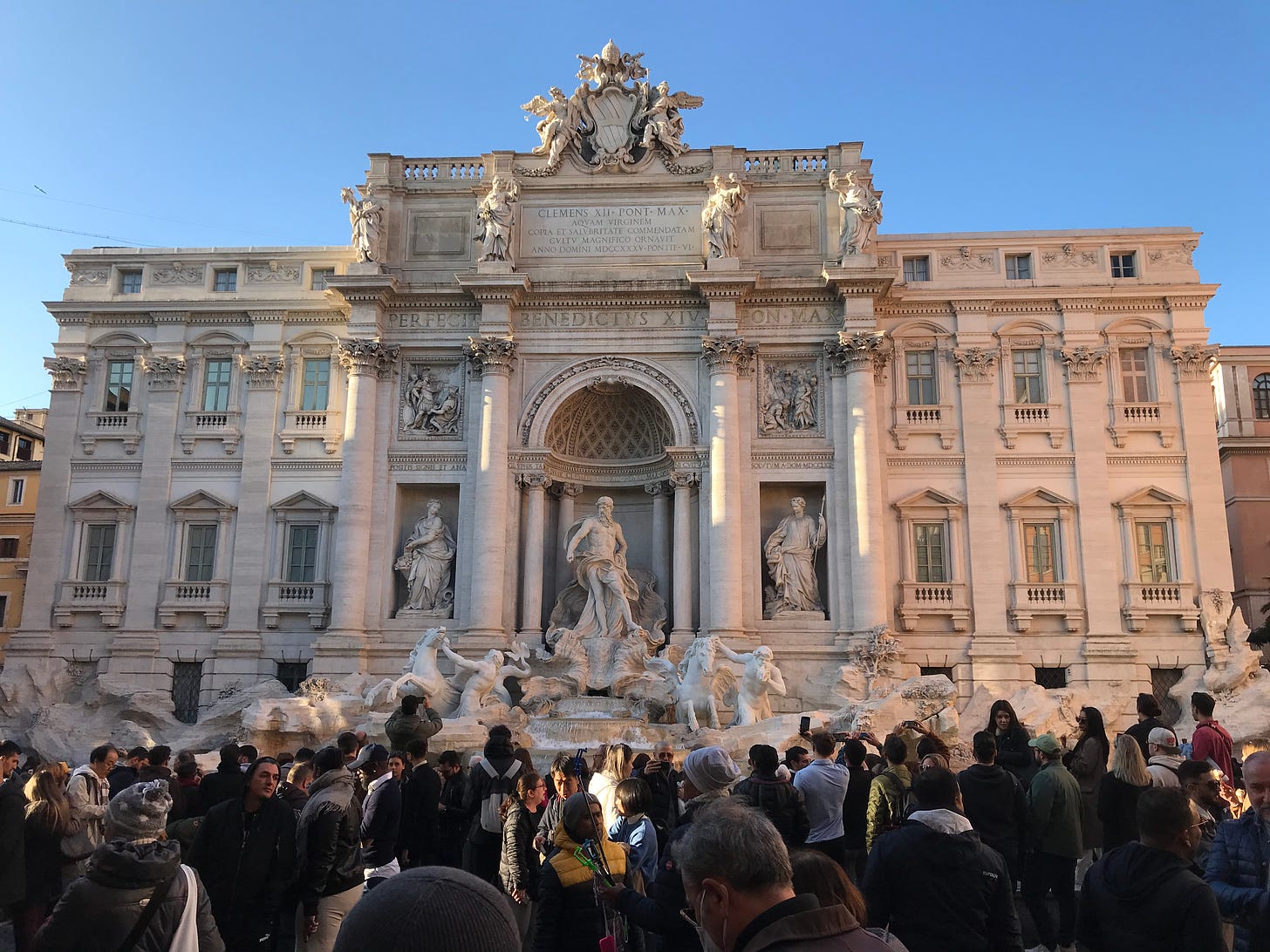
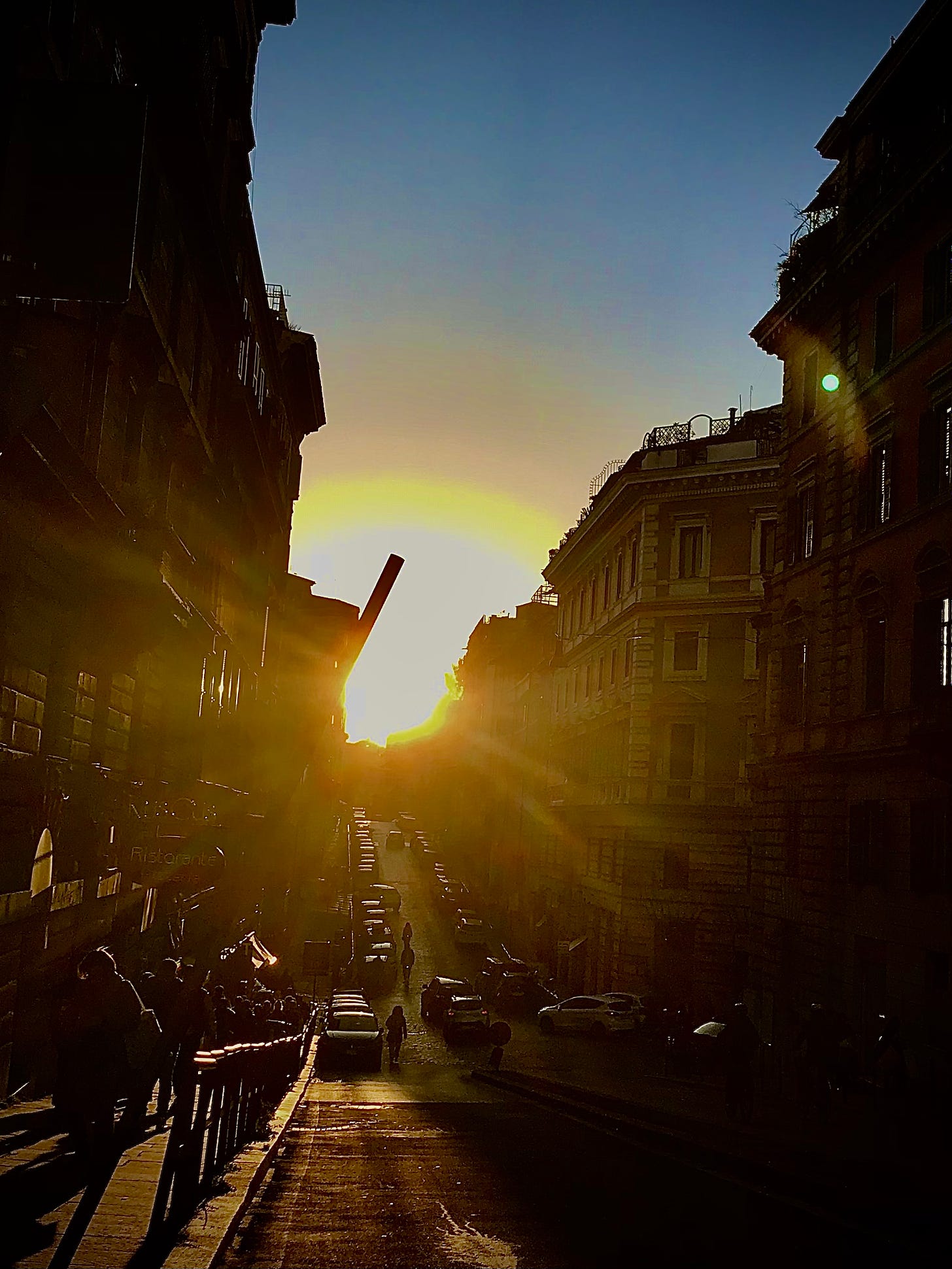
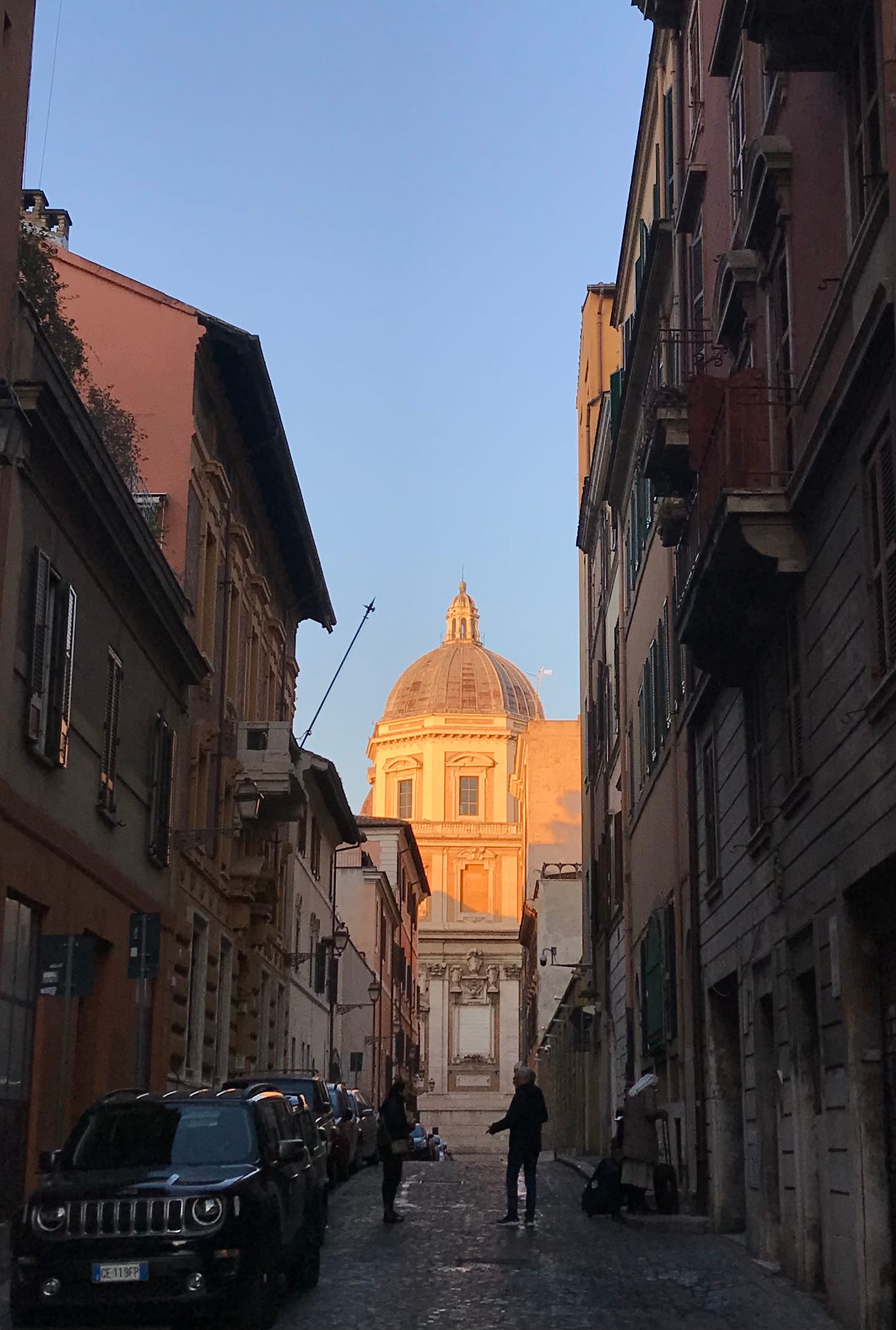
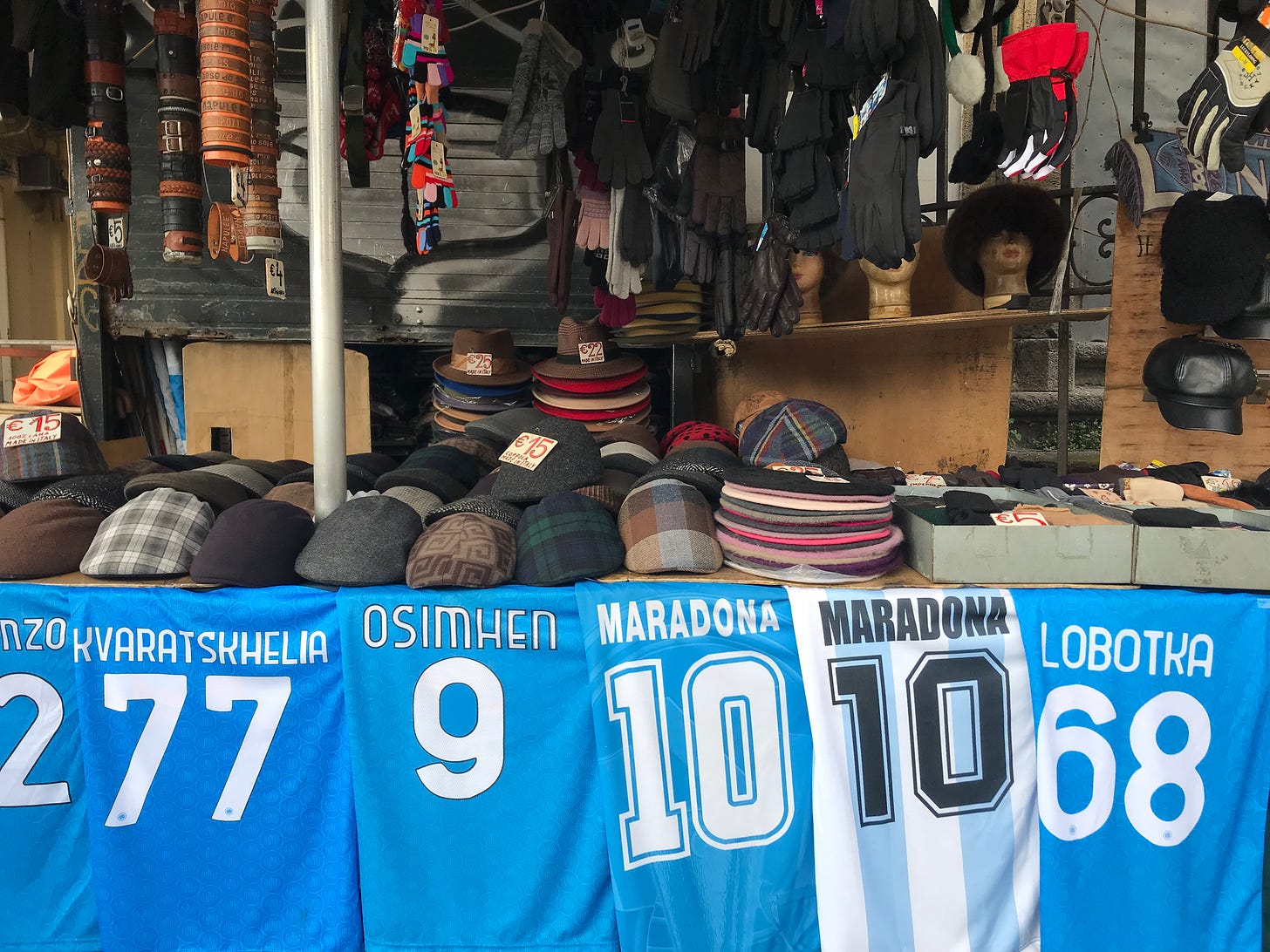
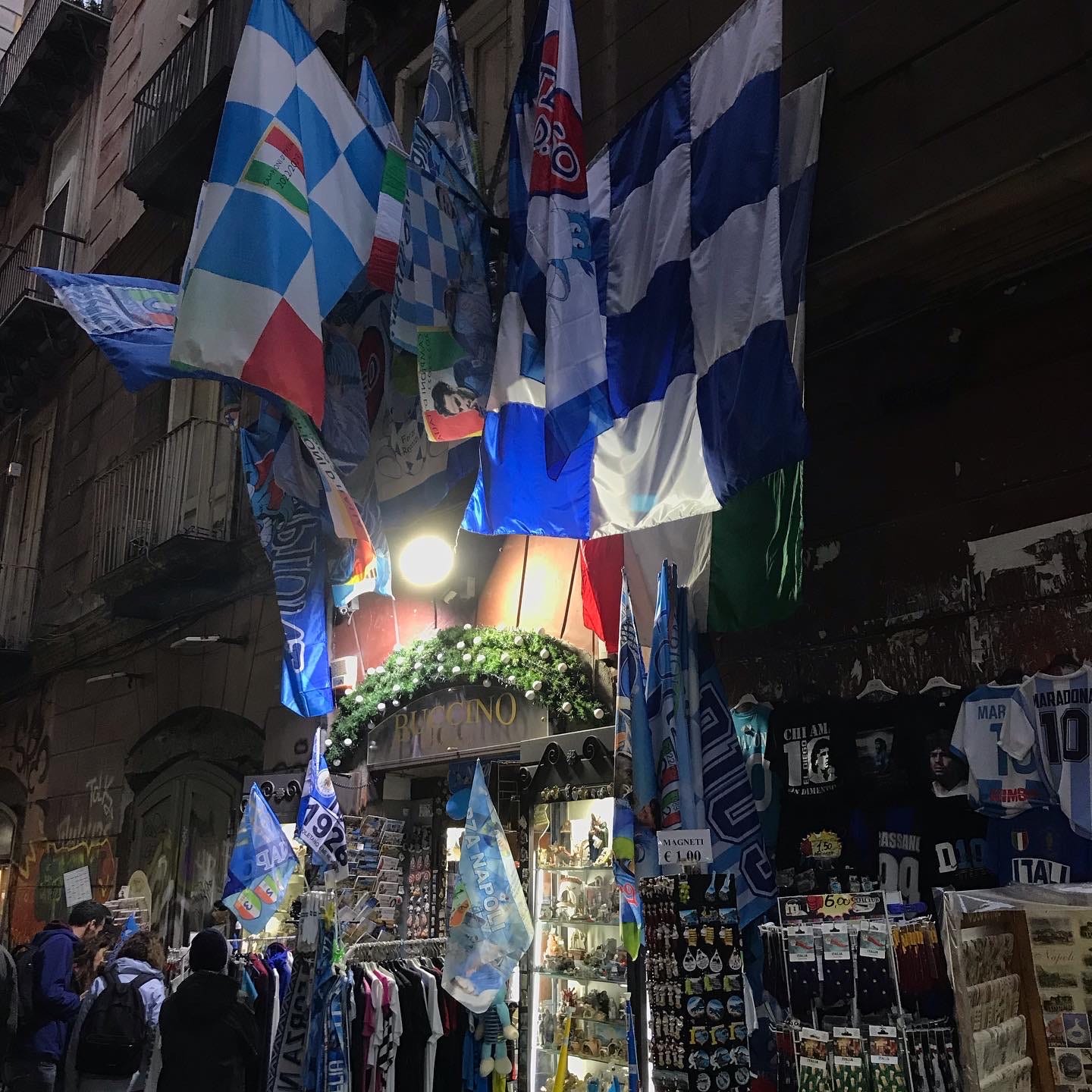
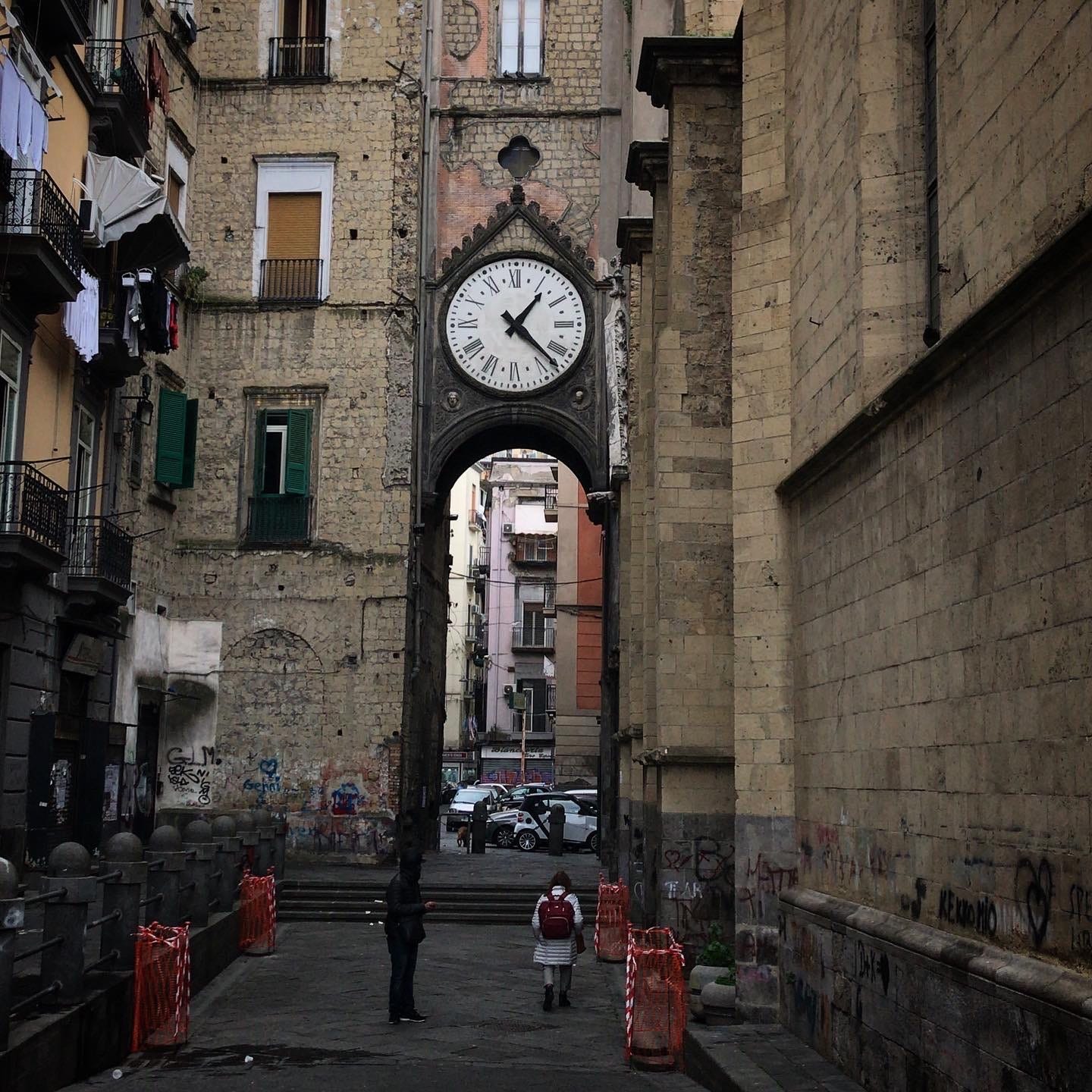
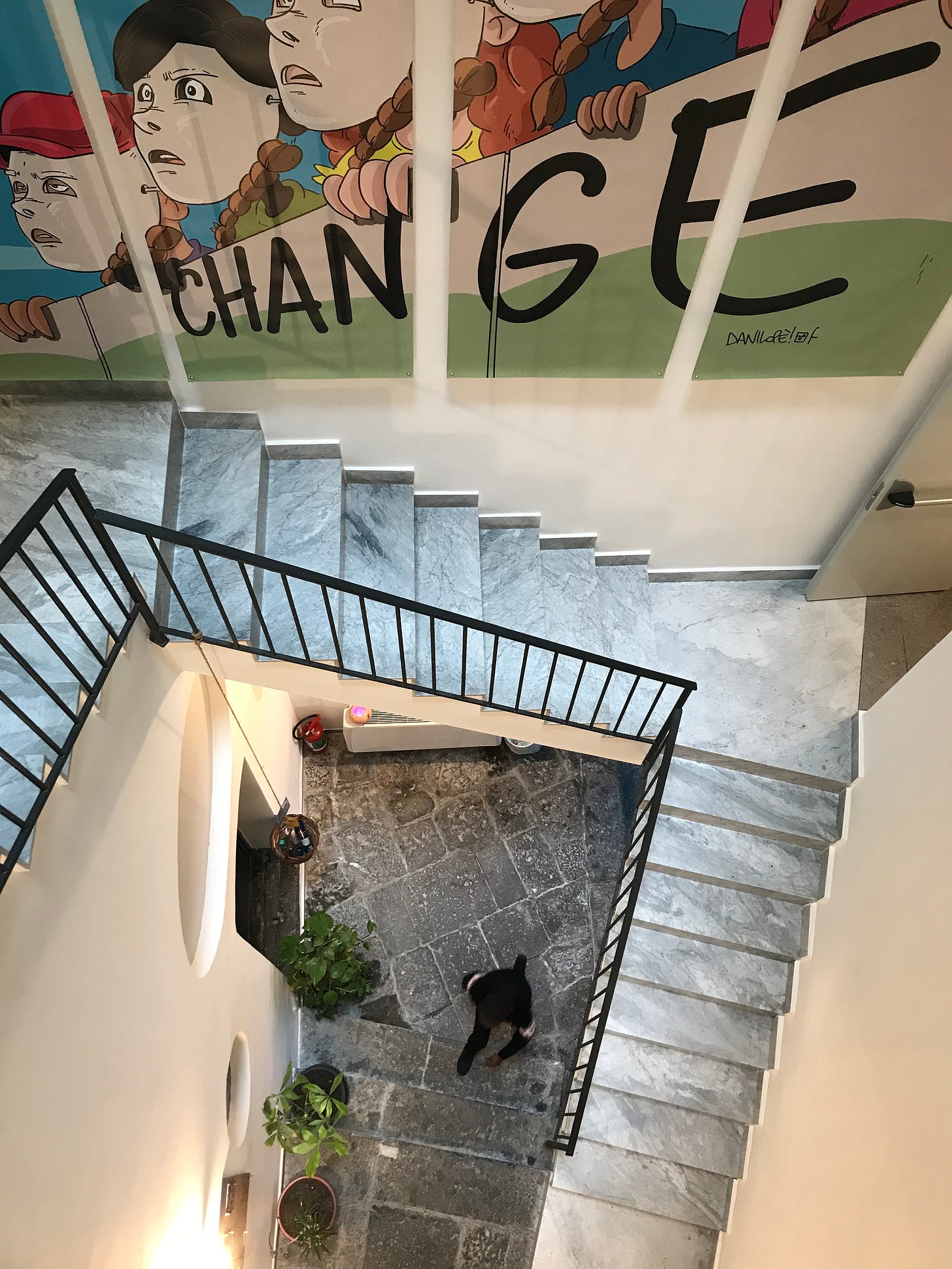
I also do the math about age. I’ll be 62 when my youngest graduates high school. If we’re lucky, I’ll live long enough for him to reach his forties before I go.
🙏🏻 Life is what happens to us while we're busy making maths! ;)